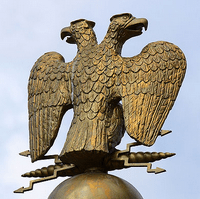In its spring issue, the venerable Washington Quarterly asked what has become a perennial question, and the central theme of "Under the Influence": Is the United States entering an age of decline or renewal? But while everyone agrees on the question, it seems that no one can make up their minds on the answer.
At first glance, recent events seem to point to the former, or decline. The financial crisis has not only hobbled the U.S. economy, but has discredited the free-market messages it has long propagated abroad. Years of war without decisive victory in Iraq and Afghanistan has added a foreboding question mark to the idea of unrivaled military might. Together, they suggest that decline could well be the new consensus.
But is this nothing more than an echo chamber? Two decades ago, Walter Russell Mead composed his declinist, "Mortal Splendor: The American Empire in Transition." That's also when Paul Kennedy wrote his magnificently momentous "The Rise and Fall of the Great Powers
," which warned of imperial overstretch and the consequent fall of the American empire. Both pointed to a turning point in international influence. In short, the U.S. was on the way out.

